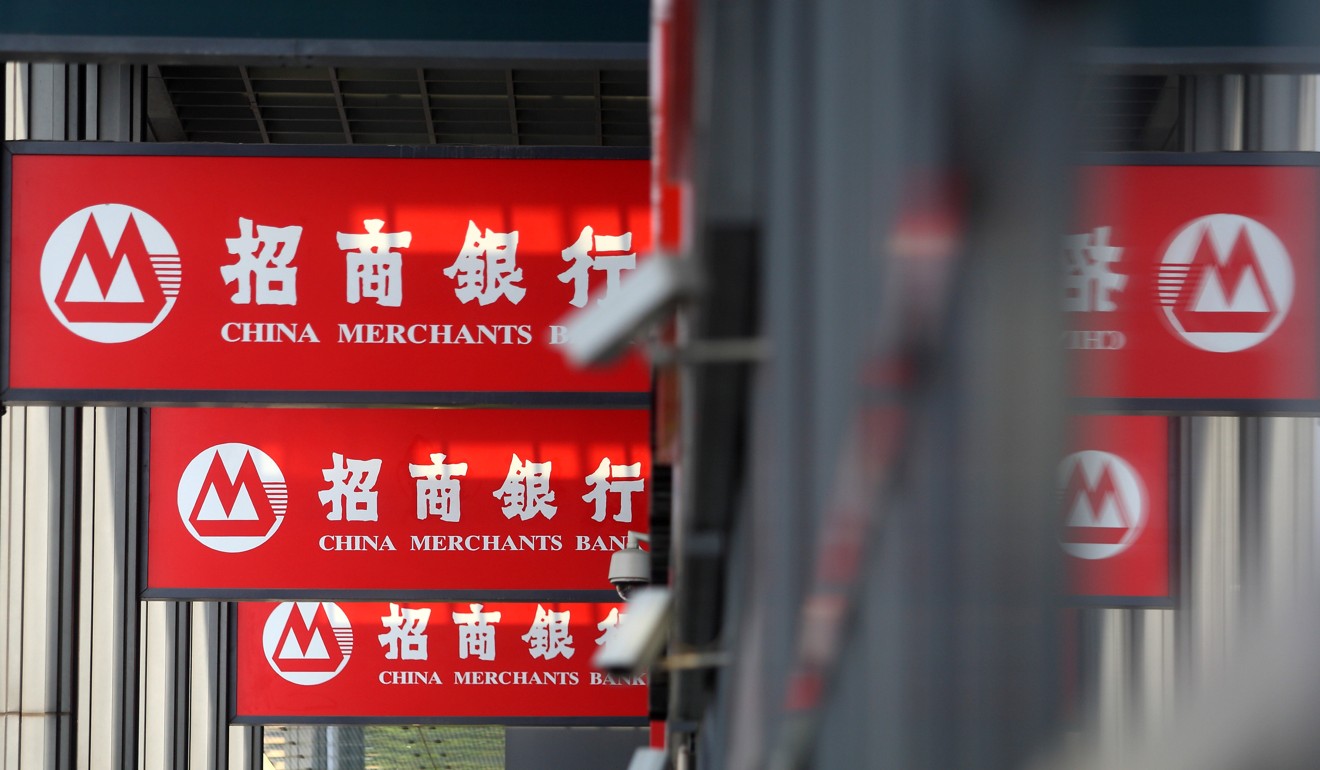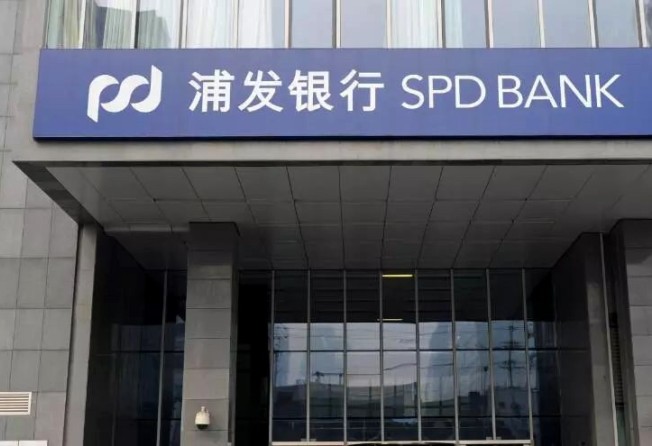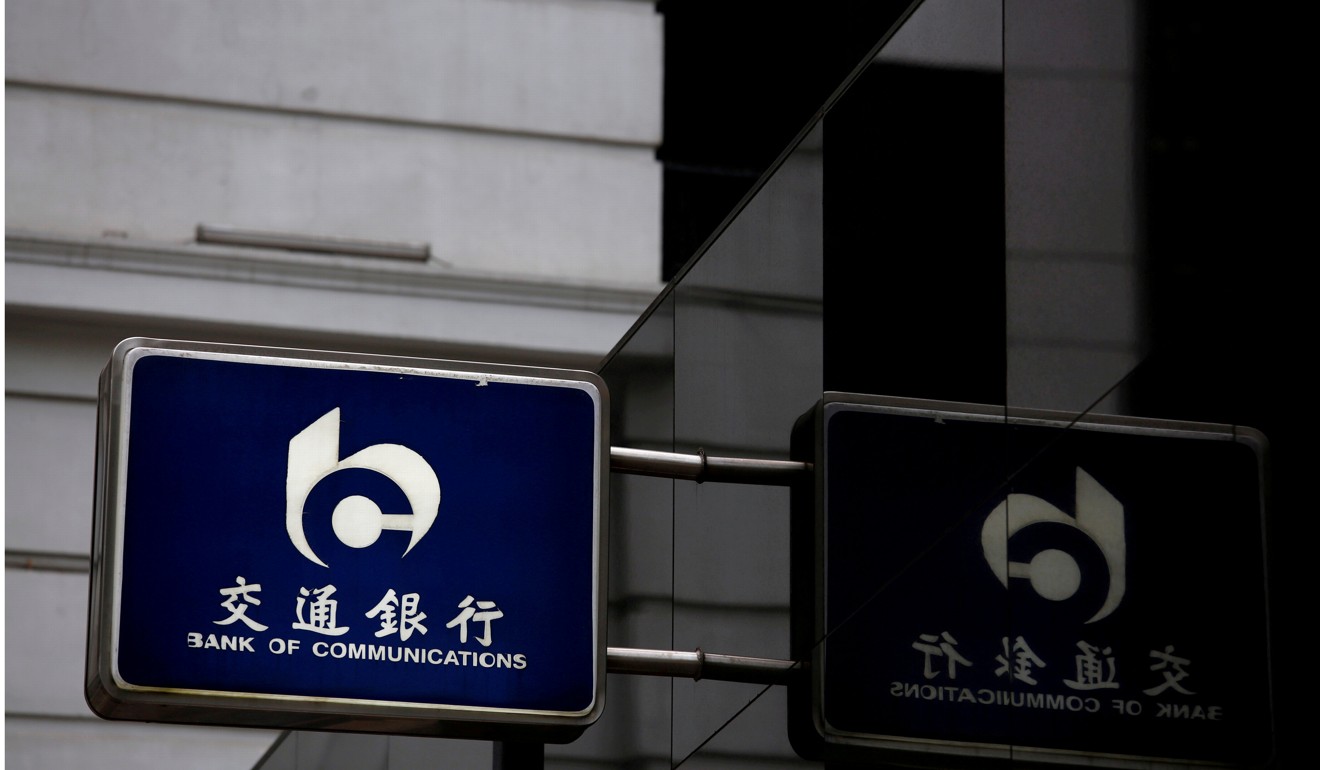
China Merchants Bank, Bank of Communications and Shanghai Pudong Development Bank dismiss US’s North Korea sanctions breach charges
- Lenders respond to Washington Post report, say they have complied with international and Chinese law
- Urge US authorities to follow cross-border investigation framework

Mainland Chinese commercial banks China Merchants Bank, Bank of Communications (Bocom) and Shanghai Pudong Development Bank (SPDB) on Tuesday dismissed allegations they were in possible breach of US sanctions against North Korea.
In statements issued after their stocks were hammered by a Washington Post report alleging misconduct, the lenders said they have been complying with international and Chinese laws, and were not involved in any investigations related to a possible breach of the sanctions.
China’s ministry of foreign affairs voiced its opposition to possible sanctions against the banks. It said Beijing was committed to upholding United Nations Security Council resolutions against North Korea, and that it not only required individuals and financial institutions to follow all sanction resolutions passed by the UN, but had also urged overseas branches of Chinese financial companies to comply with local rules.
“Meanwhile, we are also opposed to the so-called long arm enforcement imposed by the US authorities on Chinese companies,” Geng Shuang, a ministry spokesman, said at a press briefing in Beijing.
The Washington Post reported on Monday three large Chinese banks could lose access to the US financial system after a judge found them in contempt for refusing to comply with subpoenas in an investigation into breaches of North Korean sanctions.

The US authorities can move “quickly” to cut off any bank ruled to be in contempt of court from the country’s financial markets, a lawyer specialising in international sanctions told the Post.
According to the USA Patriot Act, the Treasury Department has the power to find that a bank is “of primary money laundering concern” and propose taking special measures that effectively eliminate the bank’s access to the US financial system, said Wade Weems, a former United States prosecutor and Shanghai-based lawyer for Kobre & Kim, a cross-border disputes and investigations law firm.
The regulatory process to impose a “death penalty” on a Chinese bank is relatively straight forward, but there is a policy balance to be struck, he added.
“US reliance on this powerful tool as a means for enforcement may, in the longer term, deter use of the US financial system out of concern that even a US-dollar transaction might subject foreign banks to US judicial process,” said Weems.
The banks said to be in contempt were not identified, but details in the court ruling align with a 2017 civil forfeiture action against Bocom, China Merchants Bank and SPDB, according to the report.
The three banks were identified by US authorities in official documents as early as 2016, according to earlier media reports, allegedly for handling bank accounts held by front companies used to enable North Korea to buy commodities, bypassing US sanctions.
Other state-owned banks, including Agricultural Bank of China, China Construction Bank and the Industrial and Commercial Bank of China, were also named in earlier investigations by the US Department of Justice.

“China Merchants Bank has noticed The Washington Post report. It involves information about a US court asking for client information from a Chinese bank,” the lender said in its statement.
The US authorities should follow the agreement signed by China and the United States on mutual legal help in criminal matters for cross-border evidence collection, said the statement, quoted in mainland Chinese media The Paper.
Bocom and SPDB issued statements with similar wording in the afternoon, also cited by The Paper.
SPDB specifically acknowledged it had received a requirement from a US legal department to provide information about a client, in addition to other data and information. However, any individual or organisation shall not disclose related information to overseas parties without permission, it said.
SPDB was also identified by The Washington Post as “at risk of losing access to US dollars”, without any elaboration.
Analysts said the timing of the report was sensitive. Shaun Rein, managing director of China Market Research Group in Shanghai, said it could be another “pressure tactic” following the export restrictions on Huawei Technologies by US President Donald Trump, given he is going to meet his Chinese counterpart, Xi Jinping, this week in Osaka during the G20 summit.
“I view it as likely to be a politically motivated attack by Trump administration officials looking for excuses to contain and curb China’s growth … It is doubtful that a large bank such as China Merchants Bank would break sanctions, as it has too much to lose,” he said.
China Merchants Bank dropped by more than 8.2 per cent on Tuesday in Shanghai, but recovered after the bank’s statement to close at 36.1 yuan, 4.8 per cent lower. Its H shares dropped by 7.9 per cent to close at HK$38.4 in Hong Kong. Bocom fell by 3 per cent to close at 6.1 yuan in Shanghai. Its H shares eased 3.7 per cent to close at HK$5.95. SPDB fell 3.1 per cent to close at 11.7 yuan in Shanghai.
The US excluded China’s Bank of Dandong from its financial system in November, 2017, for reportedly helping North Korea evade financial sanctions to launder funds.